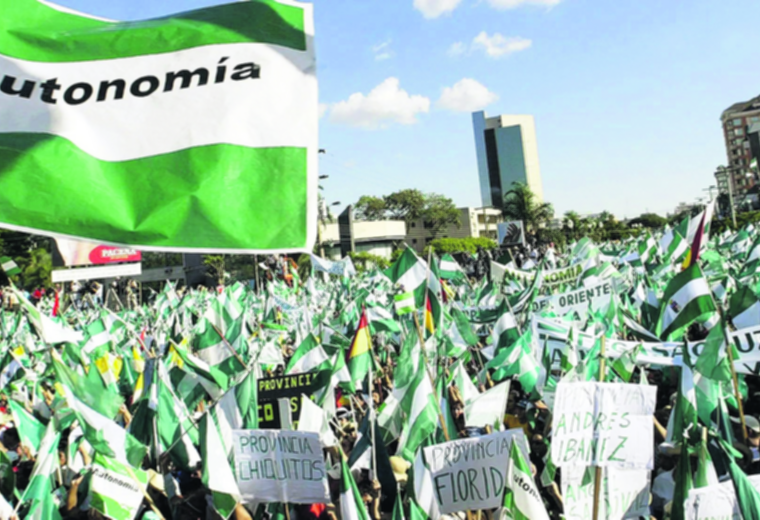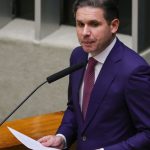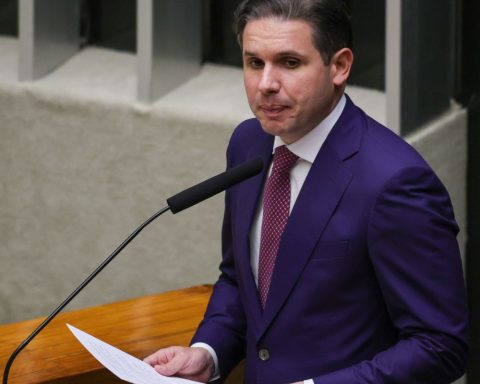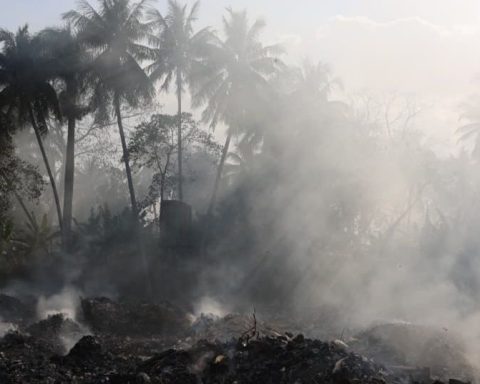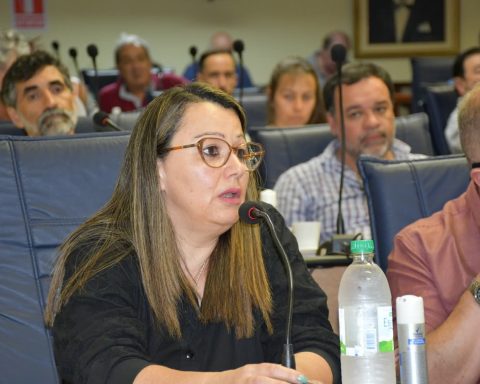June 21, 2023, 4:00 AM
June 21, 2023, 4:00 AM
The Constitution of All, a proposal to reform the Political Constitution of the State drafted by former President Gonzalo Sánchez de Lozada, provoked criticism in sectors of Santa Cruz who pointed out that it does not recognize autonomy or the vote for governor.
The adviser and son-in-law of the ex-president, Mauricio Balcázar, responded by paraphrasing Goni with a question: if it is not this, then what is it? and he remembered that the imprisonment of Governor Luis Fernando Camacho, “which is outrageous”, shows that the regional election did not work in the MAS administration, which he defined as centralist, authoritarian, and also presidential.
The Magna Carta that projected Goni outlines a “unitary State” and, with that tone, a departmental administration that goes in accordance with “a regime of autonomy and territorial administrative decentralization”, which gives the Prime Minister the power to “appoint the governor”. Currently, regional authorities are elected through popular vote.
The constitutionalist José Luis Santistevan pointed out that in its dogmatic part, “this project rescues the centralized unitary republic, that means that Bolivia loses its autonomyand that is in article 1, as in the CPE of 1967”.
Meanwhile, politically, he stated that in the part of the regions there is an “absolute regression.”
The lawyer and university professor Williams Herrera declared in the Influential program of EL DEBER Radio, that he thinks an “old” proposal and placed it in the 1990s. He criticized it because it points out that the departmental administration, which is now autonomy, “depends on the Executive Power. This gives the pattern that it is not updated, it seems that he had it saved and he took it out at this moment, it is obsolete for this moment, and it is understood because Sánchez de Lozada has been out of Bolivia for 20 years ”.
Lawyer Herrera recalled that Goni, when he was president, at the suggestion of autonomy, responded “over my corpse. He he was an absolute centralist, and for this reason he demolished the autonomyalthough it mentions it” and does not know the progress of the “election of governors”.
Mauricio Balcázar asked if it is that with the MAS Government, “Has the election of governors been of any use with an administration that is presidential? Since Leopoldo Fernández, how many governors have been persecuted or had to escape in Pando, Santa Cruz, Tarija, Cochabamba?
Then he pointed out that “if the voter is prepared as is the case in Santa Cruz, it should be better, but I repeat, with the centralist, authoritarian and presidential model that exists now, it did not work. It Governor Luis Fernando Camacho, a person elected by the people, is in prison.Yeah, that’s outrageous.”
He said he understands Santa Cruz because “The councils have been a form of resistance in the streets to authoritarianism, they were very useful”.
At that point, he revealed that while Goni was writing the proposal “not all the people who worked on this always agreed. Some of them weren’t and they had another look, they told him and Goni answered them: ‘if it’s not this, then what is it?’ and that discussion should continue, think about it”’.
In this way, he stressed that it is a proposal and that the former president has seen with great satisfaction that, indeed, It has caused a debate.
At that point, Santistevan replied that Balcázar is misinformed. “One thing is the CPE, which is a social pact. You read wrong, you are wrong, because our CPE has salvageable and important elements. The fact that the MAS government had prostituted and deformed her, that is something else. We are a State devalued by political power, but that is not the fault of the CPE”, assured the constitutional lawyer.
Balcázar recriminated the opponents. “Honestly, the Minister of the Presidency, María Nela Prada, has come out to say that they will defend their model. That is more sensible than what was done by many who only opposed it because They are used to doing just that, and being the opposition from Twitterwithout making a single proposal in almost 15 years.”
In addition, he stressed that although “it is seen as centralist, it is a model that seeks to preserve the unity of the country, where not everyone will agree. Bolivia disintegrates. Santa Cruz is indeed ready for a federal model, but can you imagine other departments, such as La Paz, Oruro, Potosí, and others. It’s going to be terrible chaos.”
He stressed that Santa Cruz is a department “much more structured. The idea is not to create a centralized system, it is about integration, to create cohesion between the national and the regional”, he justified.
In this context, he said that the proposal is to create popular participation II. “Municipalities can be organized according to their own autonomous statutes, it is not defined how their elections will be. If they want they can do by plate, or by names. Each municipality could be organized in one way or another and that way there is flexibility and a single rule is not created”.
He explained that, later, the municipalities elect the departmental councilors of each province and that council that comes from below, from the municipalities is very autonomous. A prime minister will not go to put a prefect without consensus. This is a model that demands consensus, it is by two thirds”.
Santistevan recalled that the governors, in the model proposed by Goni, are appointed by the prime minister.
As Balcázar said, he reiterated that the departmental assemblies have one representative per province, “but they are appointed by the municipal councils. That is the administrative decentralization that Goni presented in 1994. He repeats that proposal again, ”he stressed.
In addition, he stated that the governor “becomes part of the Executive Power. I mean, it’s not even decentralized. At the municipal level, the municipal councils appoint the mayor, there is no direct democracy. The people vote, but do not choose, they go back on everything that has been advanced. And the organic letters are approved by the Senate of the Republic. Nothing is going to vote anymore there are no councils, there is no referendum, so it is an absolute setback because sovereignty does not belong to the people,” said Santistevan.
